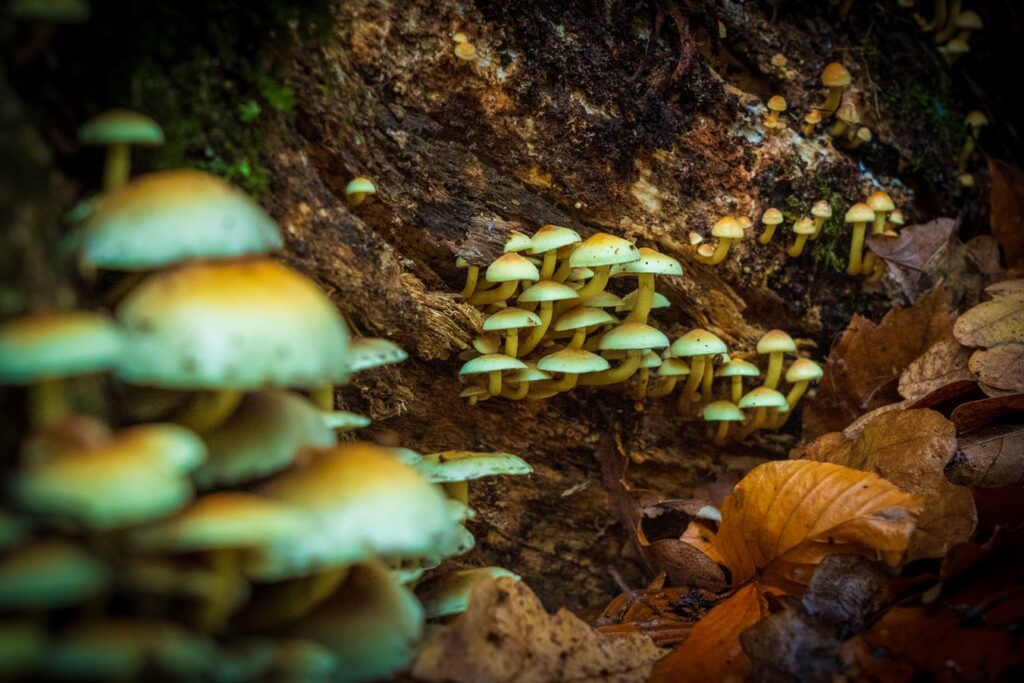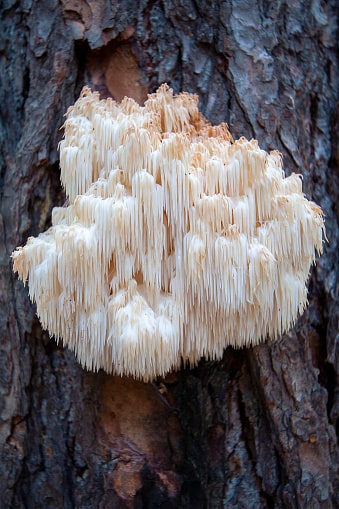 Paul Stamets, author of “Mycelium Running: How Mushrooms Can Help Save the World”, seems to have big ideas about this strange-looking fungus. While all that sounds fascinating, this article will explore a simpler question: do the benefits of medicinal mushrooms help our brain work better?
Paul Stamets, author of “Mycelium Running: How Mushrooms Can Help Save the World”, seems to have big ideas about this strange-looking fungus. While all that sounds fascinating, this article will explore a simpler question: do the benefits of medicinal mushrooms help our brain work better?
To anyone interested in the power of mushrooms, mycologist Paul Stamets is a hero.
Looking more like a festival hippie than a scientist, his talk on mushrooms is engaging and inspiring. Besides studying them for over 25 years, he has also written several books in addition to being featured on popular media like Discover magazine and Joe Rogan’s podcast.
“I see the mycelium as the Earth’s natural Internet, a consciousness with which we might be able to communicate. Through cross-species interfacing, we may one day exchange information with these sentient cellular networks.”
― Paul Stamets
Mycelium Running: How Mushrooms Can Help Save the World
One would have to read his book or listen to him speak to get the full picture. Not only does he believe that mushrooms can defend against disease, but he also thinks they can absorb toxins like chlorine.
One of the hypotheses in his book “Mycelium Running: How Mushrooms Can Help Save the World” claims that mushrooms are an ancient species. So old that they literally form the neurological network of nature.
Articles describe his enthusiasm as he runs through forests, pointing to one species after another and relating its properties. From fighting illnesses to mopping up chemical spills, the potential of mushrooms, according to Mr Stamets, is amazing.
How medicinal mushrooms can benefit your brain
Humans have been consuming mushrooms as part of traditional medicine for generations.
From reishi to shitake to Chaga, each mushroom has its own set of benefits.
Lion’s mane belongs to the same class of medicinal mushrooms. Also known as Hericum Erinaceus or Yamabushitake, it has been used extensively to enhance brain function for thousands of years in China and Japan.
It can even be found in the Americas on old or dead trees that look like this:
Interest in Lion’s mane mushroom has increased in the last few years, and it has been shown to have the following effects:
- Memory improvement(1)
- Possible gastroprotective effects(2)
- Improved mental cognition(3)
- Possible anti-depressive action(4)
It appears to work as an immunomodulator. This means that it has possible stimulation and positive immunity effects.
Can mushrooms really save our brains?
Maybe! Medicinal mushrooms have been shown in scientific studies to benefit the brain by improving cognition and increasing wellbeing. All this with little to no side effects. (5)
One study demonstrated the neuroprotective effects of Lion’s mane as a treatment for motor dysfunction by administering it to wild mice. The results showed positive effects on spatial and recognition memory. (6)
Various studies have also been conducted on humans, including a double-blind, placebo-controlled trial on 50- to 80-year-old Japanese men and women diagnosed with mild cognitive impairment.
Researchers found that patients taking four 250mg tablets three times a day for 16 weeks showed significantly increased cognitive function compared with the placebo group. (7)
It appears that science is showing us what traditional medicine has known for thousands of years – that Lion’s mane is effective in improving brain function.
And besides…if Mr Stamets seems to think that medicinal mushrooms can absorb nuclear radiation from the Fukushima disaster,(8) chances are it can help our brains in amazing and evolutionary ways.
References
- Dietary Supplementation of Lion’s Mane Medicinal Mushroom, Hericium Erinaceus (Agaricomycetes), and Spatial Memory in Wild-Type Mice:
https://www.ncbi.nlm.nih.gov/pubmed/29953363 - Gastroprotective Effects of Lion’s Mane Mushroom Hericium erinaceus (Bull.:Fr.) Pers. (Aphyllophoromycetideae) Extract against Ethanol-Induced Ulcer in Rats: https://www.ncbi.nlm.nih.gov/pubmed/24302966
- Improving effects of the mushroom Yamabushitake (Hericium Erinaceus) on mild cognitive impairment: a double-blind placebo-controlled clinical trial: https://www.ncbi.nlm.nih.gov/pubmed/18844328/
- Erinacine A-Enriched Hericium Erinaceus Mycelium Produces Antidepressant-Like Effects through Modulating BDNF/PI3K/Akt/GSK-3β Signaling in Mice: https://www.ncbi.nlm.nih.gov/pubmed/29364170/
- Toxicological study on MUNOPHIL, water extract of Panax ginseng and Hericium Erinaceum in rats: https://www.ncbi.nlm.nih.gov/pubmed/20633464
- Dietary Supplementation of Lion’s Mane Medicinal Mushroom, Hericium Erinaceus (Agaricomycetes), and Spatial Memory in Wild-Type Mice:
https://www.ncbi.nlm.nih.gov/pubmed/29953363 - Gastroprotective Effects of Lion’s Mane Mushroom Hericium erinaceus (Bull.:Fr.) Pers. (Aphyllophoromycetideae) Extract against Ethanol-Induced Ulcer in Rats: https://www.ncbi.nlm.nih.gov/pubmed/24302966
- https://www.permaculture.co.uk/articles/using-fungi-remediate-radiation-fukushima

